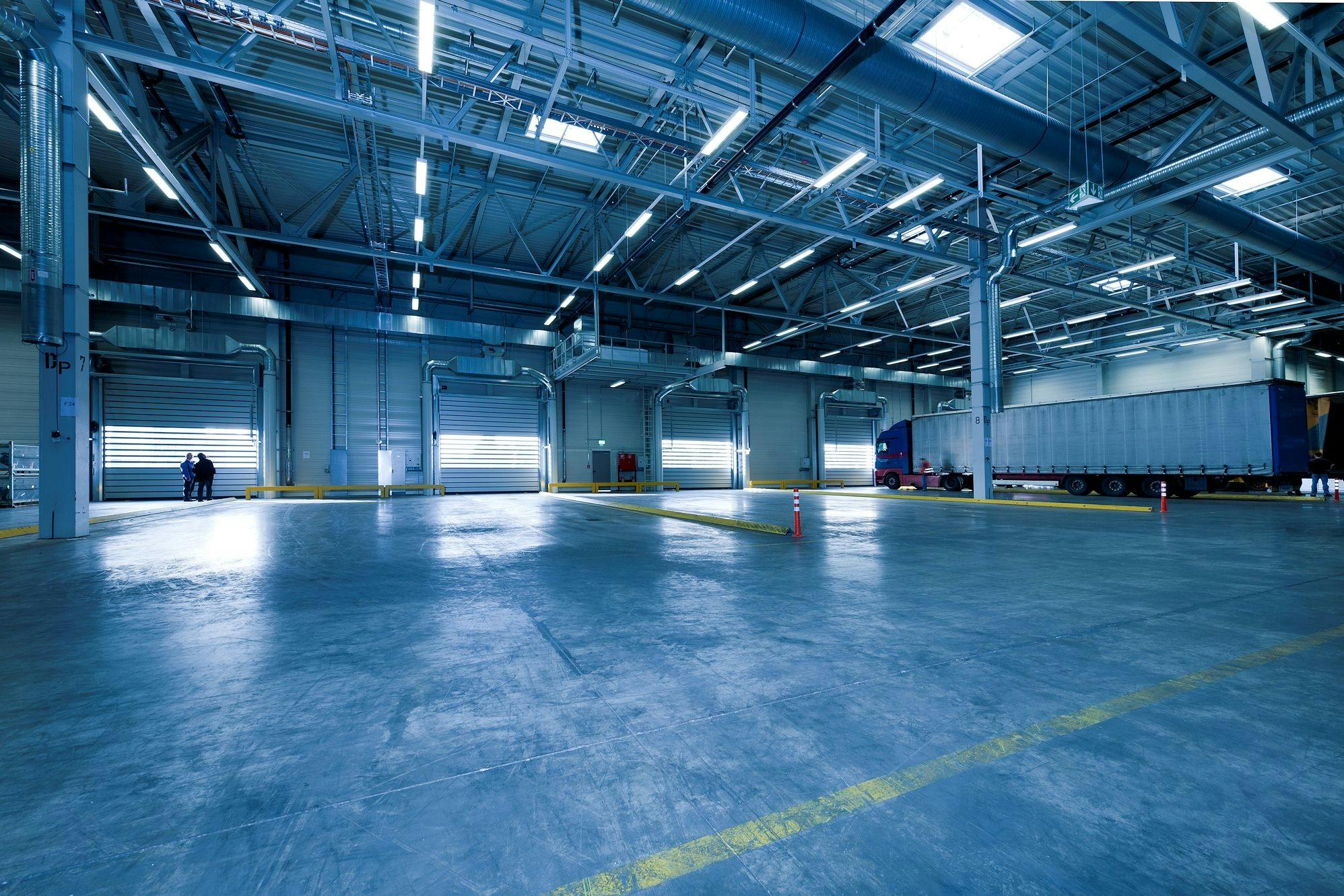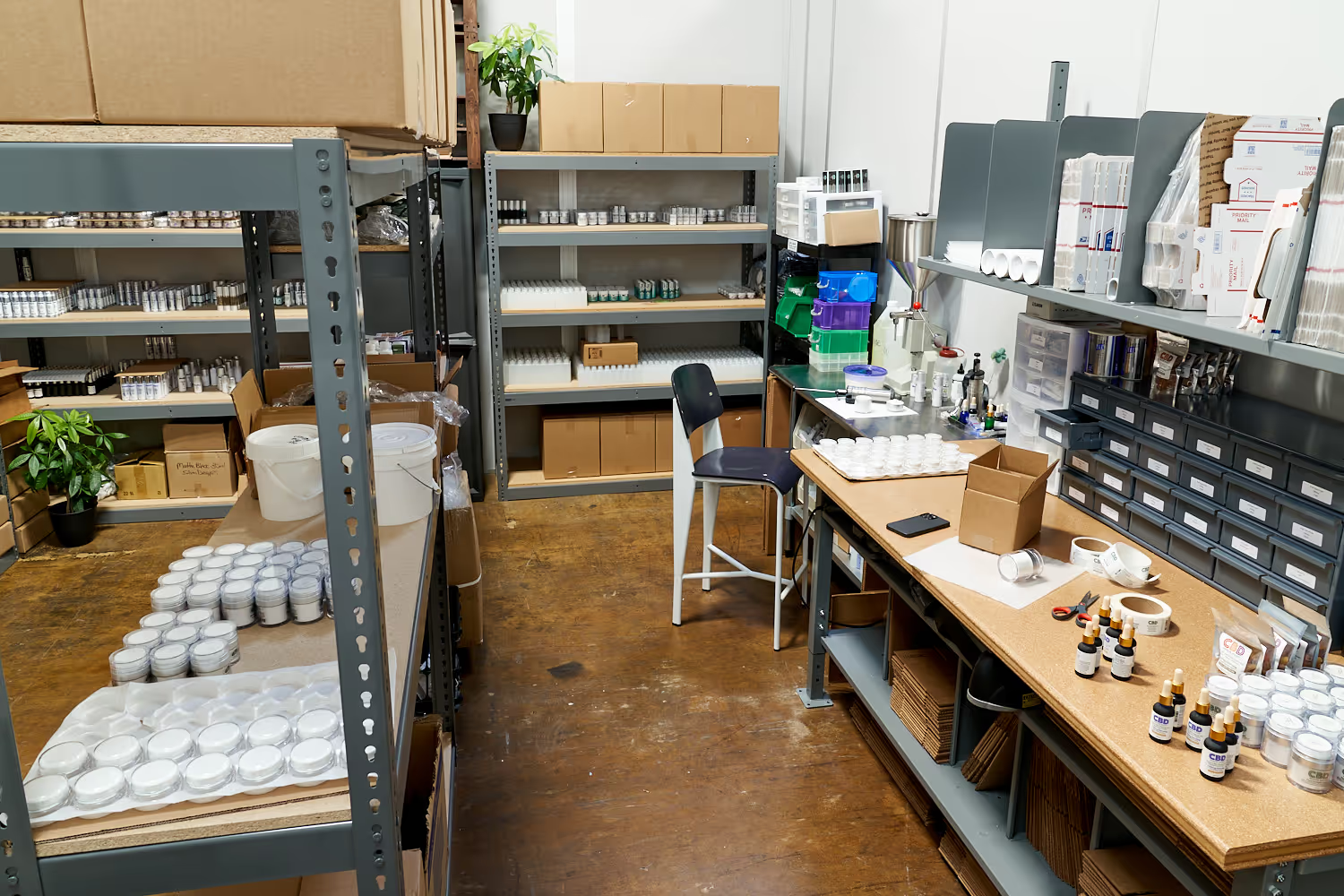Key takeaways
Shipping. Fulfillment. Inventory management. Freight drop-offs. In-store restocks. It’s the messy middle that nearly every growing business has to navigate—whether you’re shipping boxes to customers, pallets to retailers, or managing hybrid inventory across a storefront and an online shop.
But here's the kicker: you can outsource logistics without giving up control. For small businesses juggling ecommerce, freight, and retail, logistics can feel like an unpredictable beast. If you’ve ever asked:
- Should I outsource shipping?
- How much does it cost to outsource shipping?
- Will I lose visibility or flexibility?
—you're in the right place. This guide walks through the smartest ways to outsource shipping, freight, and fulfillment operations without losing your grip on what matters most: quality, consistency, and customer trust. Not sure if you're even ready for your own warehouse? Start with this guide.
Outsource logistics options, ranked by control and value
1. DIY fulfillment

Cost: Low out-of-pocket, high in hours and headaches. You are paying for all expenses yourself, including insurance to protect your goods and operations.
Control: 100%
Scalability: 🚫 Nope
Retailers often try to ship ecommerce orders from the backroom. Early-stage ecommerce brands often have a home-based warehouse (a.k.a their living room). Freight-based businesses sometimes store pallets in rented garages. DIY works… until it doesn’t. While the control is unmatched, so is the burnout. Dealing with every aspect of logistics, from storage and inventory management to shipping, quickly becomes overwhelming. When handling fulfillment yourself, you also need to secure insurance to protect your goods and operations.
2. Traditional 3PLs

Cost: $$$ with a side of surprise fees
Control: Minimal—operations happen off-site
Scalability: Yes, but mostly for enterprise brands
Third-party fulfillment companies (3PLs) can seem like the dream: someone else picks, packs, and ships while you focus on growth. But the reality for many small businesses? High minimums, inflexible workflows, and little to no visibility. While the right fulfillment company can offer significant savings on infrastructure and labor, there is also risk—errors, delays, or communication issues can impact your brand and customer satisfaction. Freight movers may find 3PLs can’t handle nuanced regional routing. Retailers often struggle to sync their inventory between online and in-store when everything is offsite. When choosing a fulfillment partner, a robust distribution network is essential to reach new markets and support your business as it grows.
3. Freelancers or part-time team member fulfillment help
Cost: Mid-range
Control: Medium
Scalability: Limited
Whether you’re hiring part-time help or using gig apps, this relieves short-term pressure. Freelancers or part-time help can become a valuable team member within your organization, contributing to multi-department collaboration and strategic alignment. Retail stores may bring in extra hands for ecommerce growth, and small regional distributors might use temporary help to prep freight loads. However, coordinating and managing these temporary fulfillment solutions requires ongoing work to ensure smooth operations and organizational consistency. But it still puts management and consistency on your plate.
4. Co-warehousing
Cost: Flexible and right-sized
Control: High—you’re on-site or nearby
Scalability: Strong
Perfect for hybrid retailers, product distributors, and makers alike. Shared logistics spaces let you store inventory, fulfill orders, prep freight, and run operations without committing to a full lease. Co-warehousing offers flexibility to adapt to changing storage needs, whether you need to scale up during peak seasons or adjust for inventory fluctuations. With scalable storage solutions, co-warehousing helps prevent inventory shortages by ensuring you always have the space you need for new stock or increased demand. Want to skip the lease but still access warehouse functionality? See how you can get warehouse access without the lease.
5. Modular, on-demand logistics support without a warehouse lease
Cost: Usage-based and transparent
Control: Fully retained
Scalability: High—support when you need it, with the ability to scale operations up or down based on order volume.
Best for: SMBs who want to grow without losing touch with operations and take the lead in directing logistics with modular support.
If co-warehousing is the “just right” bed, Saltbox’s Access Plans are the cozy blanket. It’s logistics support on your terms—no leases, no bloated fees, no one-size-fits-all fulfillment model. Use cases include:
- Retailers expanding online who need short-term space and help fulfilling online orders
- Freight movers who need dock access and staging areas for delivery routing
- Ecommerce brands prepping Amazon FBA shipments or managing returns
- Businesses running promotions that need to handle increased order volume efficiently during sales campaigns or product launches
On-demand logistics ensures efficient handling and storage of goods, with additional services like custom packaging, assembly, and labeling available to enhance your supply chain.
Curious what this costs compared to traditional outsourcing? Here’s our pricing breakdown for full transparency.
When to consider outsourcing your logistics
If any of the following sound familiar, it might be time to shift your approach. Many entrepreneurs reach a point in their business growth where outsourcing logistics becomes essential to manage increased demand and complexity. By outsourcing, entrepreneurs can focus on their core business activities instead of dealing with the operational challenges of logistics and fulfillment. This allows you to avoid the hassle of managing the detailed, time-consuming aspects of packing, shipping, and warehouse management.
- You’re shipping more than you can physically handle
- Freight drop-offs are jamming up your workflow
- You’re splitting inventory between retail and online with no system
- You’re not ready for a warehouse lease but need real fulfillment help
Not sure what kind of space or model fits best? This blog explores how to evaluate your warehouse needs.
Logistics, but make it flexible
If you take one thing from this post, let it be this: Outsourcing doesn’t have to mean giving up control.
There’s a new model emerging—one where logistics are collaborative, not transactional. Where support flexes with your needs. And where SMBs—from retailers to regional suppliers—get access to the same quality tools and services once reserved for the big guys.
Modern flexible logistics models offer value-added logistics services, such as custom packaging and assembly, that go beyond basic storage to improve supply chain efficiency and customer satisfaction. Logistics partners bring deep knowledge and expertise in logistics systems, domestic transportation, and aligning with your brand strategy, enabling efficient operations and tailored support. Organizational alignment and collaboration across departments are key to successful outsourcing and inventory management. Today’s logistics providers also offer a global reach, supporting ecommerce order fulfillment for businesses across the globe.
Saltbox is leading that shift—not with a hard sell, but with infrastructure and support actually built for modern businesses.
Measuring success: How to evaluate your outsourcing strategy
To ensure your outsourcing strategy is delivering real value, it’s essential to measure success using clear, actionable metrics. Start by tracking key performance indicators (KPIs) such as shipping speed, inventory levels, and customer satisfaction. These metrics provide a snapshot of how well your current fulfillment setup is meeting expectations and where there may be room for improvement.
Regularly reviewing these KPIs helps you identify issues before they become big problems—whether it’s a slowdown in shipping, inventory shortages, or dips in customer satisfaction. It’s also important to assess potential risks, such as supply chain disruptions or unexpected logistics issues, and have contingency plans in place to protect your business.
By taking a proactive approach to measuring and optimizing your outsourcing strategy, you can ensure your fulfillment operations continue to support your growth, keep customers happy, and help your business run smoothly—no matter what challenges arise.
Ready to make the decision to outsource on your terms?
Whether you’re an ecommerce business seeking fulfillment control, a brick-and-mortar retailer looking to test the ecommerce waters, or a regional freight mover, there’s a way to grow smarter—and keep your operational soul intact. Try Saltbox Access Plans with built-in logistics help and get a 30-day money-back guarantee.
Frequently asked questions
For Her
For Him
For Pets
For Anyone

Related posts
Learn from businesses improving their operational efficiency. Explore how Saltbox’s expert support and flexible spaces drive their growth.


10 best ReadySpaces alternatives and competitors In 2026
I’ll review the top 10 ReadySpaces alternatives for efficiently managing inventory with dedicated spaces.


Amazon stopped doing FBA prep: What sellers need to do in 2026
Amazon’s exit from in-house prep means sellers must now rely on third-party FBA prep services to stay compliant, avoid delays, and protect their bottom line.


10 best Cubework alternatives and competitors in 2026
We’ll evaluate the 10 best Cubework alternatives that can help you stay on top of your inventory with dedicated workspaces.
Related terms
Learn from businesses improving their operational efficiency. Explore how Saltbox’s expert support and flexible spaces drive their growth.

.png)





